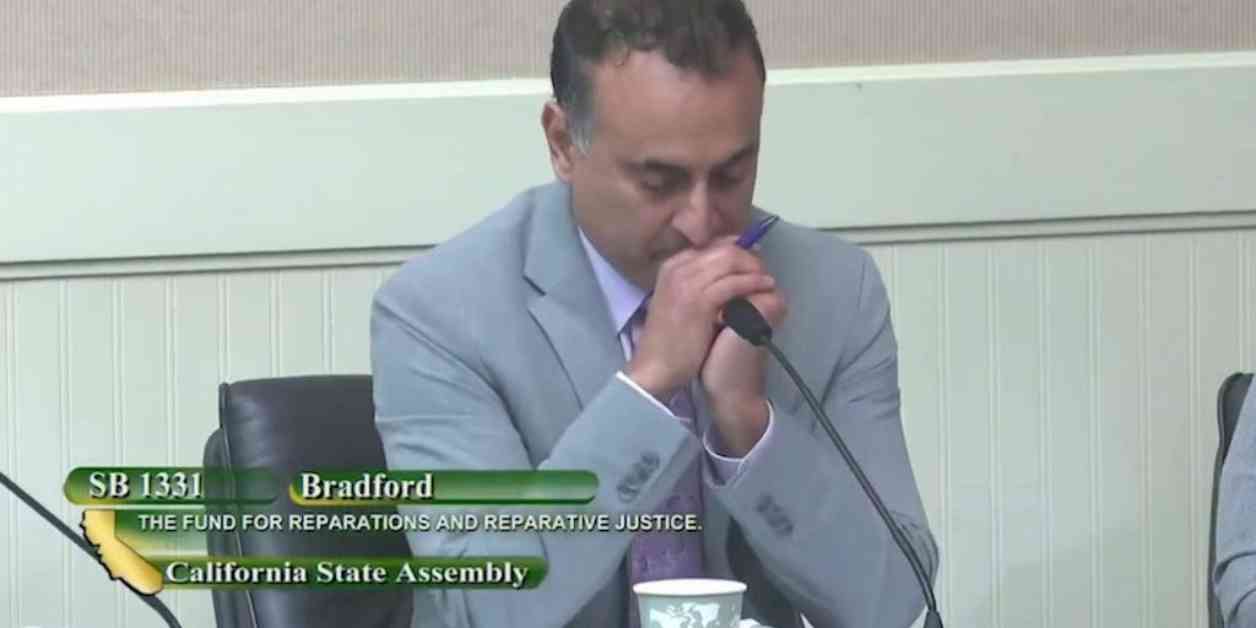A California Democrat was deeply moved during a recent meeting of the California Assembly Committee on Judiciary when a Republican lawmaker argued that it would be unfair to require Asians and Latinos to contribute to slavery reparations for African-Americans. The emotional exchange occurred on June 11 while discussing SB 1331, a bill aimed at creating a “Fund for Reparations and Reparative Justice” in the state treasury as part of a reparation proposal for the descendants of American slaves.
Assemblywoman Kate Sanchez, a Republican from Santa Margarita, expressed her concerns during the hearing, referencing economists’ analysis that estimated the cost of the proposal to be around $800 billion. Sanchez highlighted that this amount is significantly larger than the entire state budget and would necessitate a substantial tax increase, which she deemed unfair to place on the current population who had no involvement in historical injustices.
San Jose Democratic Assemblyman Ash Kalra, the chairman of the Judiciary Committee, responded by stating that reparations are necessary, including possible monetary compensation. He emphasized the importance of acknowledging the painful history of African descendants in the United States, highlighting the country’s development as a superpower built on centuries of free labor from African slaves.
Following a passionate discussion, the Judiciary Committee voted 9-3 along party lines to advance SB 1331, marking it as one of four reparation bills being considered by the California legislature. This bill is part of a larger initiative that includes multiple reparations bills introduced by the California Legislative Black Caucus, aimed at addressing past discriminatory practices and offering apologies to Black Californians for historical injustices.
In addition to SB 1331, other bills introduced in California seek to provide property compensation, cash payouts, homeownership aid, and property tax relief to the descendants of slaves and Black Californians. While previous bills on reparations were voted down, the current legislative efforts signal a renewed focus on addressing the lasting effects of slavery and discrimination in the state.
As discussions around reparations continue in California, the state Senate has taken steps to acknowledge the role of discriminatory practices and slave laws in shaping its history. The bills under consideration aim to offer a formal apology to Black Californians and pave the way for comprehensive reparations policies to be signed into law by the governor.
The emotional exchange between lawmakers underscores the complexity and sensitivity of addressing historical injustices through reparations, with contrasting viewpoints on the financial burden and moral imperative of compensating the descendants of slaves. The ongoing legislative efforts in California reflect a broader national conversation on reparations and racial justice, highlighting the need for meaningful actions to address systemic inequalities and historical wrongs.





















